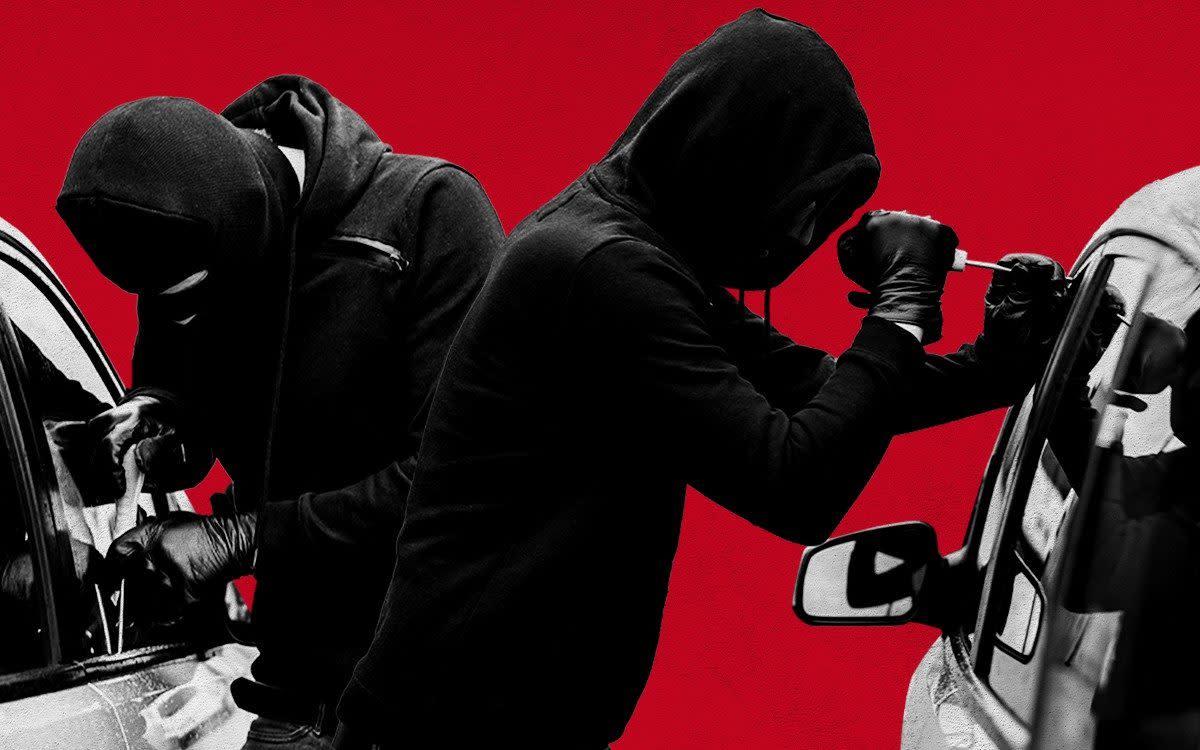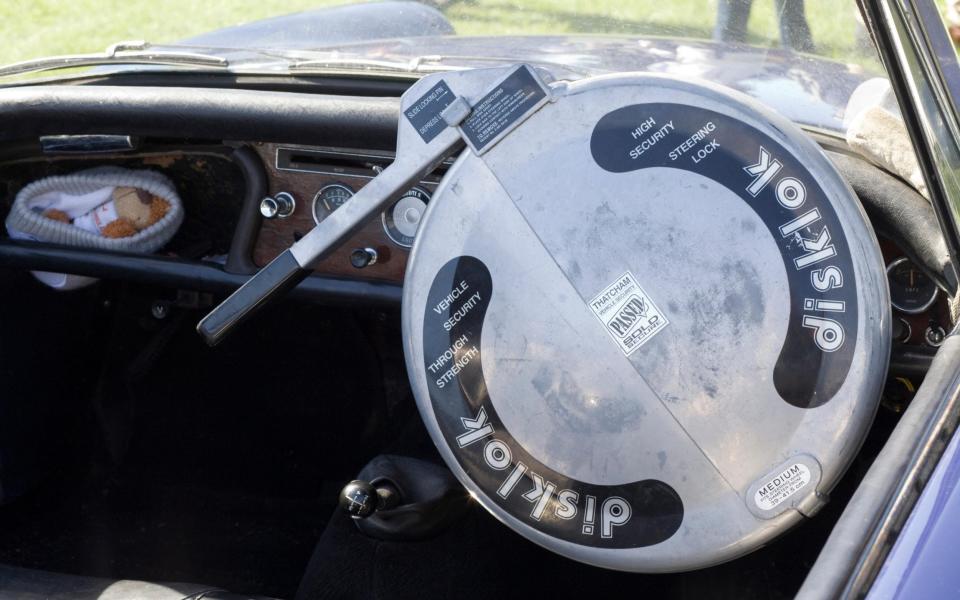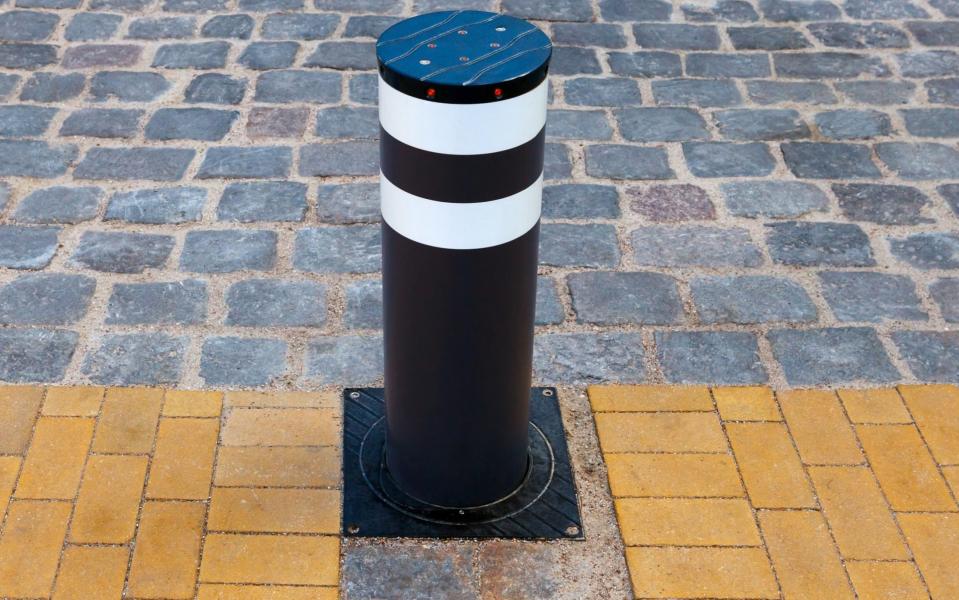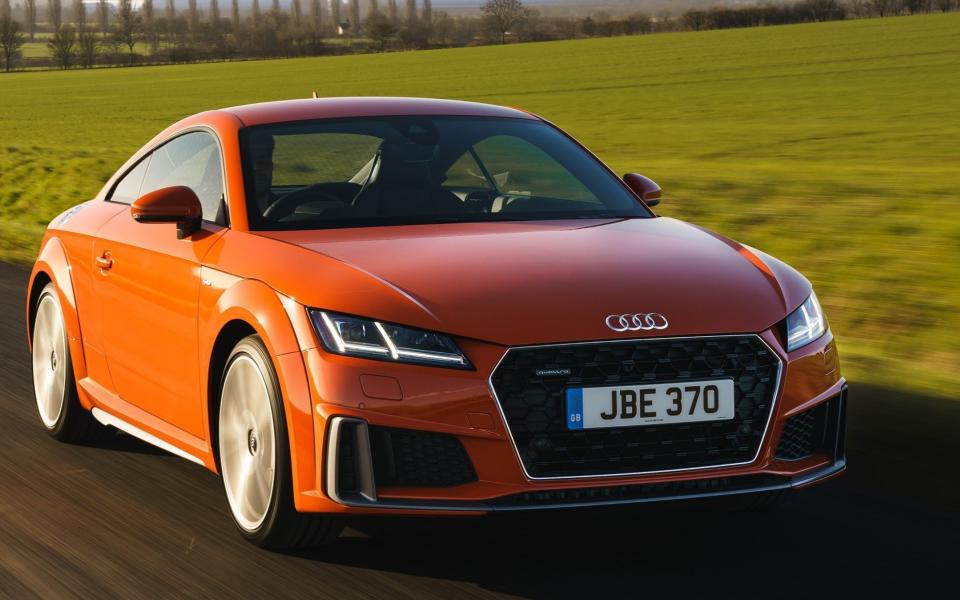How to theft-proof your car – without spending a fortune

Car crime is booming, with thieves continually finding new and clever ways to break into and steal motors. While it’s easy to blame the manufacturers and poor policing for making car theft too easy, there’s plenty we can do to make life harder for criminals – and you don’t have to spend a fortune on high-tech security systems.
According to police and security experts the most prevalent way to steal cars is electronic compromise. This is where thieves hack into cars’ computers to defeat their security systems and simply drive away. But here are some relatively low-tech ways in which car owners can protect their property.
Security steps that don’t cost a penny
Chief operating officer for the Police’s Crime Prevention Initiative (CPI), Michael Brook, said: “The cheapest way to protect your car is to clear your junk out of the garage and put your car inside. There, it’s out of sight and increases the amount of time it would take a criminal to steal it.”
If you don’t have a garage, Brook recommends parking your car on the drive. “If you have gates, close them. To thwart thieves who try to scan your remote fob, keep keys in your home as far away from the car as possible.”
Cheap but effective
Stealing number plates is popular so criminals can put them on stolen cars or break traffic laws with impunity. Martyn Randle from the Tracking and Aftermarket Security System Association (TASSA) said: “You can buy tamper-proof screws for number plates. They only cost around £7 and if you live in any big city they’re well worth it.”
Another cheap way to protect your car, this time from thieves smashing the windows, is using security film. Randle explained: “While this doesn’t stop the glass breaking, it does hold it all in place so thieves can’t do a quick smash and grab.”
The best deterrent is free: don’t leave anything valuable in your car, certainly not in plain sight.
More expensive but still very effective
AA technical expert Greg Carter rates steering wheel locks. “The chap who launched AA Key Assist is from a family of locksmiths and his advice was a steering wheel lock. The point is that it’s a very visible deterrent and thieves can see it will slow them down.”

The experts we spoke to all agreed that if you’re buying any physical deterrent, it should be certified. Secure by Design and Sold Secure are the two standards most mentioned. The Disklok conforms to both and is available from £150.
But George Leonard from security specialist Sercha Auto warned: “We have people who put Diskloks on the steering wheel but don’t lock them. The thinking is that simply seeing them will cause most thieves to move on. But if someone wants to take a car, they’re going to take it. And they’ll make a right mess of a car interior while attempting to remove a locked Disklok.”
Overrated and potentially useless
CCTV is frequently cited as great at car theft prevention. But Michael Brooke from Police CPI said: “It’s not a solution. We are always seeing people stealing vehicles being filmed on CCTV. It’s little deterrent: they just wear a hoodie and a baseball cap to hide their faces.”
Security bollards which fold up in front of your car are only effective if you spend big, according to George Leonard. He said: “A disc cutter will get through cheaper examples with one blade. We’ve seen some from China that cost £300 and the quality is horrific.
“We sell one bollard that sinks into the ground, is battery-powered, made of marine grade steel with a steel cage over the top and it’s encrypted so you can’t hack it. But it’s £1,900 supplied and fitted.”

The ultimate in immobilisation
With ever more cars having their electronics hacked, aftermarket immobilisers are popular once more. Sercha Auto said that last year its most popular product, the Ghost II immobiliser, recorded a 100 per cent uplift in sales.
The Ghost II makes cars impervious to having their electronic brain, or CAN Bus wiring, broken into. Drivers disarm such devices by pressing existing buttons on the steering wheel and dashboard in a unique sequence. But Martyn Randle warned: “If you have these systems fitted and they’re installed incorrectly it can cause a fire or electronics problems.” They’re not cheap either, at £499 fitted.
If you do go down the aftermarket immobiliser route, make sure it’s installed professionally and is approved by Thatcham or TASSA.
What about tracking devices?
Not all trackers are the same. For it to be of any use, you need one that’s linked to a secure operating centre. Then if you report your car stolen, police can follow the signal.
TASSA’s Randle revealed: “If you get a tracking system that you can follow on your phone, you’ll know where the car is – assuming thieves haven’t jammed the system’s GPS – but the police won’t be able to recover it because the system won’t meet their requirements. And remember, trackers on which the owner can stop the car remotely are illegal.”
With jammers easy to buy online, if you choose a tracking device make sure it’s Secure by Design approved. And systems made by Tracker use a VHF signal which can’t be jammed.
What if you have a keyless car?
This is a system using radio signals to transmit data between key and car. It’s these signals that relay thieves grab, then use them to fool the car into thinking the key is nearby. Putting your key into a Faraday bag or pouch contains the signal it emits, instantly stopping thieves from being able to copy it then relay that signal to the car.
The Defender Signal Blocker is designed to hold mobile phones and car key fobs. It’s Secured by Design approved and costs £6.95 for a pack of two.
Alternatively, you could get a “sleeping battery” for the keyfob. Michael Brooke explained: “This is an effective bit of kit. The battery has a motion sensor in it and goes to sleep if it doesn’t detect movement for three minutes.” That means the key stops transmitting its signal, which prevents relay theft. It is pricey, however; a twin pack of tiny CR2032 or 2450 batteries costs £94.99.
If you’re still concerned, you could disable the car’s keyless function via its infotainment screen and unlock it the old-fashioned way, by pressing a button on the key fob. Such an effort!
Take your valuables and lock the doors
Last year, the UK recorded 207,570 cars broken into. And the Crime Survey for England and Wales noted that in 2020 the average cost of items stolen from vehicles was £382.
Chief technical officer from Thatcham Research, Richard Billyeald, said: “A large proportion of thefts occur from inadvertently unlocked vehicles. Always check the vehicle is locked and the windows are up after using a keyfob. Listen for the locking noise and watch for the lights to flash or mirrors to fold.”
If you leave a laptop computer locked in the boot, make sure it’s switched off. Thieves scan for Bluetooth signals from laptops so they know which cars to attack.
Think about where you park
Official figures say most thefts from vehicles (41 per cent) take place when cars or vans are parked in the street outside our homes. The next most likely place (36 per cent) is on driveways or residential car parks.
But you can deter thieves. A convicted car thief speaking to Huddersfield University’s Preventing Vehicle Crime report said: “A grafter wants to get in and out without being seen or heard. The more you make that difficult, the more of a deterrent it is. Even the security lights, the motion ones, they put people off, as does leaving a light on in a house so you think that the people are still up. Combine those and I wouldn’t go near that car on that driveway that night.”
Only 6 per cent of car break-ins now take place in car parks. This is down to the Park Mark safer car parking scheme set up in the 1990s to cut crime in such locations.
Michael Brooke from Police CPI said: “There are now nearly 5,000 of these in the UK. Park in one and you know you’ve taken some sensible steps to leave your car in a safe place. They are inspected annually by specially trained and qualified officers to ensure they conform to the standards.”

What are the hardest cars to steal?
This is very difficult to say definitively because theft techniques are evolving all the time. But in its most recent security test, What Car? found that cars whose keys “go to sleep” when they haven’t moved were the most secure from relay theft.
The cars that a “thief” couldn’t take included the current Audi TT, BMW X3, Ford Fiesta and Mercedes-Benz A-Class.

 Yahoo News
Yahoo News 
